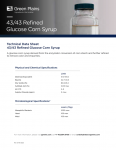High chocolate prices are not scaring Halloween revelers this season

“The US is consolidating its lead of the global seasonal chocolate market, making up nearly a third of global value sales. And US household spend on seasonal chocolates are expected to grow double digits this year with that trend likely to persist in the year ahead. However, the cocoa crop shortage is expected to sustain seasonal chocolate's volume decline and negatively impact consumption rates over the forecast,” Carl Quash III, head of snacks and nutrition at Euromonitor International, told FoodNavigator-USA.
Demand for chocolate remains high, despite cocoa price increases
Seasonal US chocolate sales — including Halloween, Valentine’s, Easter and other holiday chocolates — are estimated to be $4.59 billion in 2024, growing by a 7.7% CAGR from 2019-2024, according to Euromonitor data.
Chocolate remains the largest candy category, accounting for $21.4 billion or 56% of the total confection market, according to Circana MULO data for the year ending Aug. 11 as shared in a recent National Confectioners Association report. Candies, including gummies, accounted for 32% of the confectionery market with 12.4 billion in sales, while gum and mints sales came in at $4.5 billion or 12% of the market, for the same period.
"With the context of a challenging economic environment in mind, it brings the opportunity for other snack category players to pitch their seasonal value propositions to consumers. You have salty snacks, popcorn, gummy candy and other players all interested in a greater share of holiday consumption and competing with relatively lower pricing pressure at the moment." — Carl Quash III, head of snacks and nutrition at Euromonitor International
A separate National Confectioners Association report found that 94% of consumers will share chocolate and candy with friends this holiday, as more US shoppers enjoy Halloween candy ahead of the holiday in what has been called “Summerween” and “Aug-tober.”
‘Ongoing price pressures are driving a lot of rethink on what treats families buy’
Despite strong demand, chocolate prices are increasing at a higher rate than other candies, due to the ongoing cocoa supply chain issues, which is making some shoppers reconsider the Halloween candies they are purchasing, Quash III noted.
This Halloween, chocolate prices increased by 4%, compared to candy and gum prices which grew by 3.1% this season, year-over-year ending in mid-October, product data and market intelligence company Datasembly shared with FoodNavigator-USA. Michigan, Ohio and Kansas and Arizona are seeing above-average chocolate prices, with prices increasing by 5%, 4.3% and 4.2%, respectively, for the same time period.
“Americans really love their chocolate, and the resilient spending habits on the category is a testament to how critical some find it to be for the seasonal celebratory experience. However, ongoing price pressures are driving a lot of rethinking on what treats families buy,” said Quash III.
He added, “With the context of a challenging economic environment in mind, it brings the opportunity for other snack category players to pitch their seasonal value propositions to consumers. You have salty snacks, popcorn, gummy candy and other players all interested in a greater share of holiday consumption and competing with relatively lower pricing pressure at the moment.”
CPG brands leverage promotions to attract price-conscious consumers
CPG brands are deploying a variety of promotions to attract price-sensitive customers, with Hershey's leading the way with the most promotions, Datasembly reported.
"Buy more, save more" discounts were the most common type of promotion across Albertsons, Kroger, Target and Walmart, which accounted for 26% of all promotions, according to Datasembly data for the week of Oct. 6-12. Additionally, temporary price reductions accounted for 23.7% of price reductions for the same time period.
Candy brands Payday and Russell Stover offer some of the largest buy more, save more discounts, according to Datasembly data.


















